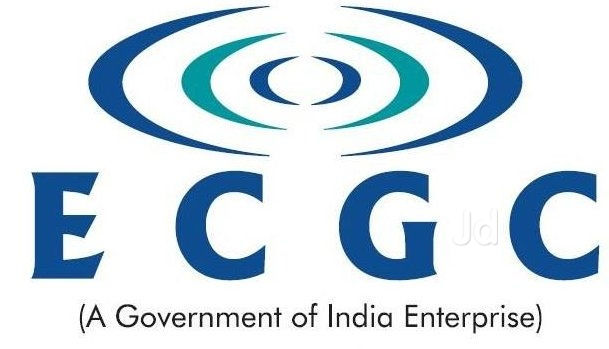The Reserve Bank of India (RBI), as the nation's central bank, offers one of the most prestigious and intellectually rewarding career paths in the country. Working at RBI is not just a banking job; it is a role in policy-making, financial regulation, and national economic stability. Recruitment is highly competitive and structured into distinct tiers, primarily targeting Graduates (Grade B and Assistant) and 10th Pass (Office Attendant) candidates.
Active Recruitment
3 Active-
RBI Assistant Recruitment 2026: Apply Online for 650 Assistant Posts - Full Notification, Eligibility, SalaryLast Date: Mar 08, 2026 Mumbai Tech
-
RBI Part Time Pharmacist Recruitment 2026: Notification, Eligibility, Salary, Last Date 9 MarchLast Date: Mar 09, 2026 Kamrup Tech
-
RBI Non-CSG Recruitment 2026: Apply Online for 21 Grade A & Grade B Posts - Full Notification, Eligibility, SalaryLast Date: Feb 26, 2026 Mumbai Tech
Related Categories
About The Reserve Bank of India

About The Reserve Bank of India
For aspirants preparing for SSC, UPSC, and banking sector examinations, The Reserve Bank of India (RBI) represents the pinnacle of public sector careers. Established on April 1, 1935, under the Reserve Bank of India Act, 1934, the RBI stands as the nation’s central bank and monetary authority.
Historical Significance & Evolution
Originally headquartered in Kolkata, the Central Office permanently moved to Mumbai in 1937. It remains the strategic hub where the Governor sits and vital economic policies are formulated, making it a critical subject for general awareness sections in government job exams.
Public Sector Ownership
While initially privately owned, the institution underwent a pivotal transformation with its nationalisation in 1949. Today, the Reserve Bank is fully owned by the Government of India, cementing its status as a premier government organization dedicated to the nation's financial stability and economic development.
Aspiring candidates seeking latest sarkari naukri in the banking domain should note the RBI's role in regulating financial systems. RBI recruitment offers a prestigious pathway for those aiming to contribute to national development through public service.
Official Address
Contact Information
- 022 - 2260 1000
- 022 - 2266 0358
- Visit Official Website
This organization has released 31 recruitment notifications in the last 3 years.
Expired / Closed Notifications
-
RBI Office Attendant Recruitment 2026 – Apply Online for 572 PostsClosed: Feb 04, 2026
-
RBI Part Time Banks Medical Consultant Recruitment 2026 – Apply Offline for 03 PostsClosed: Feb 12, 2026
-
RBI Banks Medical Consultant Recruitment 2026 – Apply Offline for 01 PostClosed: Feb 13, 2026
-
RBI Guwahati Bank's Medical Consultant Recruitment 2026 – Apply Online for 1 PostClosed: Jan 22, 2026
-
Reserve Bank of India (RBI) Invites Application for 93 Expert Recruitment 2025Closed: Jan 06, 2026
-
Reserve Bank of India (RBI) Invites Application for 28 Manager and Various PostsClosed: Jul 31, 2025
-
Reserve Bank of India (RBI) Invites Application for Deputy Governor Recruitment 2024Closed: Nov 30, 2024
-
Reserve Bank of India (RBI) Invites Application for Pharmacist Recruitment 2024Closed: Aug 30, 2024
About RBI Careers
| Feature | Organization Details |
| Organization Type | Central Bank (Statutory Body) |
| Headquarters | Mumbai, Maharashtra |
| Primary Entry Gate | RBI Services Board Exams (Grade B, Assistant, Office Attendant) |
| Salary Range | ₹45,000 - ₹1,50,000 (Initial Monthly Gross) |
🏛️ Organization Overview
The Reserve Bank of India (RBI) is the supreme monetary authority of the country, established on April 1, 1935. It is responsible for the issuance and supply of the Indian Rupee and the regulation of the Indian banking system.5 Headquartered in Mumbai, it operates through 31 regional offices across state capitals.
A career at RBI is highly coveted due to its "work-life balance," fixed working hours, and the absence of direct commercial customer dealing.6 Employees are involved in critical functions such as Monetary Policy, Foreign Exchange Management, and Currency Issue.7 The RBI Services Board (RBISB) conducts the recruitment drives, ensuring a merit-based entry into its various specialized departments like DEPR (Economic Research) and DSIM (Statistics).+1
💼 Key Job Profiles (Evergreen Roles)
- Grade B Officer (General): The flagship entry-level officer role. Officers manage various departments, conduct inspections of commercial banks, and assist in policy formulation.8 Requires a Bachelor's degree with 60% marks.9+1
- RBI Assistant: Handles clerical duties including data entry, file maintenance, and financial record keeping.10 Entry requires a Bachelor's degree with 50% marks and proficiency in the local language (LPT).11+1
- Office Attendant: A Group-C post responsible for maintenance of records and general office assistance.12 This is strictly for Undergraduates (10th pass); graduates are generally not eligible to apply.13+1
- Specialist Officers (Grade B): Roles in specialized streams like DEPR (Economics) or DSIM (Statistics).14 Requires a Master's degree in the relevant field.15+1
💰 Salary & Employee Benefits
RBI is known for offering the highest salary packages in the Indian banking sector.
- Grade B Officer: Initial monthly gross emoluments are approximately ₹1,50,000 (inclusive of all allowances).16 The pay scale is ₹78,450 – ₹1,41,600 (16 years).
- Assistant: Initial monthly gross emoluments are approximately ₹47,849.17
- Office Attendant: Monthly gross salary is approximately ₹46,029.18
- Perks: Includes 15% HRA (if not using Bank's quarters), 150 Liters Fuel Allowance, Briefcase allowance, Book Grant, Festival Advance, and LFC (Leave Fare Concession) once every two years for travel anywhere in the world.
🎯 Selection Process
The selection process is rigorous and designed to test both aptitude and depth of knowledge.19
- Phase I (Prelims): Objective test covering Reasoning, Quantitative Aptitude, English, and General Awareness.20 Marks here are qualifying (not added to final merit).
- Phase II (Mains): A mix of Objective and Descriptive papers.21 For Grade B, this includes Economic & Social Issues (ESI) and Finance & Management (FM).22+1
- Interview: The final stage (75 marks for Grade B).23 It carries a weightage of roughly 20% in the final selection.24+1
- Language Proficiency Test (LPT): Mandatory for Assistants and Office Attendants to ensure they can read, write, and speak the local language of the region.25
💡 Expert Tips (How to Crack RBI Exams)
Master the "General Awareness" Section
In RBI exams, GA is the kingmaker. For Grade B, focus heavily on Economic & Financial news, Union Budget, and Economic Survey. Most questions are derived from reports by RBI, SEBI, and the World Bank from the last 6 months.
Build Descriptive Writing Skills
Phase II for Grade B requires you to type descriptive answers on a keyboard.26 Practice writing 400-600 word essays on topics like Financial Inclusion, Digital Rupee, and Sustainable Development to improve both content and typing speed.
Understand the Attempt Limit
Note that General/EWS category candidates have a maximum of 6 attempts for the Grade B (General) Phase-I exam.27 There is no such limit for SC/ST/OBC/PwBD candidates. Use your attempts wisely.
Mandatory Disclaimer: All details are sourced from official notifications. MySarkariNaukri.com provides informational guidance only and is not affiliated with any government agency.
Verification Source: Verify at: https://www.rbi.org.in/






_0.png)
.jpeg)


